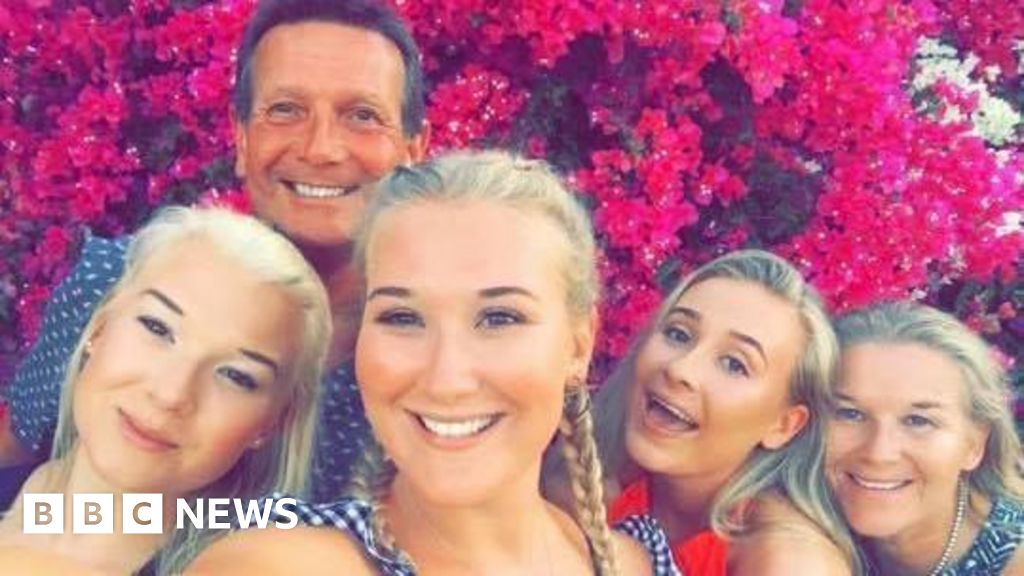Former Wales international and Lions star Jamie Roberts to join NHS as doctor | ITV News Wales
Former Wales international and British and Irish Lion Jamie Roberts will complete his medical training to become an NHS doctor.
Three years after his retirement from professional rugby and over a decade after finishing his initial medical degree, Roberts has announced he will begin working as a resident doctor and start the final part of his training this summer.
UK medical training usually requires a five-year undergraduate degree before a two-year foundation course where trainees become resident doctors working in a professional setting and are paid a salary.
Due to his rugby commitments, Roberts completed his undergraduate degree in seven years, graduating from Cardiff University in 2013.
He then went on to obtain postgraduate degrees at both Loughborough University and Cambridge University.
Now, after passing a 'return to medicine' exam in November, Roberts will start his two year-foundation course before deciding on what area of medicine to specialise in the long run. As a result he will start working within Cardiff and Vale Health Board this summer. “I crave pressure, responsibility and accountability,” Roberts told WalesOnline“It has taken me a while to work out exactly what I miss from the game, and that’s it. I miss the pressure and doing something that brings with it pressure and scrutiny.“Of course I miss the lads, I miss the changing room and I miss the social side of rugby probably above all else.“I love problem-solving, I love working with people and I guess when you go through that soul-searching when you retire, you try to narrow down what you really love and what you really want to go after.“Medicine and being a doctor ticks a lot of boxes. It’s problem-solving, it’s in science, it’s working with people, it brings significant pressure and responsibility. I can’t wait to join another great team in the NHS.”
As a father to two young children, Roberts who has returned to living in Cardiff, said he applied for a process called 'pre-allocation' which allows him to work in his local health board.
Since retiring from playing the game, he has formed a career as a well-respected pundit, regularly appearing on BBC Scrum V, ITV’s Six Nations coverage, Premier Sports and TNT Sports. He is also a non-executive director on the Welsh Rugby Union board.
As a result, while undergoing his medical training, Roberts is hoping to stay involved in Rugby on some-level. “The NHS is probably more flexible now than it has been previously. I get pre-allocated to Cardiff and Vale health board.“I have young children, so you can apply for something called pre-allocation, which allows you to work in your local health board.“I’m starting at Llandough, which is my first rotation on geriatrics, and then I’ve got my other five rotations at the Heath for the next couple of years. I think I’ve got A&E, emergency medicine, trauma orthopedics, cardiovascular medicine, respiratory medicine and colorectal surgery.“So you can pro rata your time commitment and salary I guess for 50% all the way to 100%. So I’ve applied for 70%-80%, which gives me that day off in the week to allow me to stay involved in the game.”
“Whenever anyone goes into hospital, it is still humbling to see the effort and work which goes into treating patients.“I’m under no illusions of how challenging it will be and how much I need to learn. Even just looking at one medical textbook now, I go ‘wow!’
“The volume and intensity of work is immense, but that’s the challenge.“When players retire, if you take the whole-life approach, you’ve got 30 years of life ahead of you. You invest in a career that has longevity and there’s a clear path.“That’s one of the great things in medicine. There’s a clear pathway of things you want to work in.“You get fulfilment from seeing people under your care get better. There’s a reason people see a GP – they are not well.“It’s a privilege to be able to go into it because you are contributing to people’s health at the end of the day. That’s the buzz and appeal.“There’s a lot of discourse around the health service and the challenges it is facing, but to me therein lies the challenge and appeal about going into that, rolling my sleeves up and giving it everything I’ve got.”
After completing his foundation training, Roberts will need to make a decision on which area to specialise. “Because of my background in sport trauma, orthopedic surgery appeals straight away. I loved learning about injuries when I had them and my fellow players [did]. I took a real interest in it whenever players got injured, and found it fascinating – the process of surgery and the rehabilitation process as well.“When you go through that as a player, you feel like you learn more. I was really invested in that when I got injured.”










